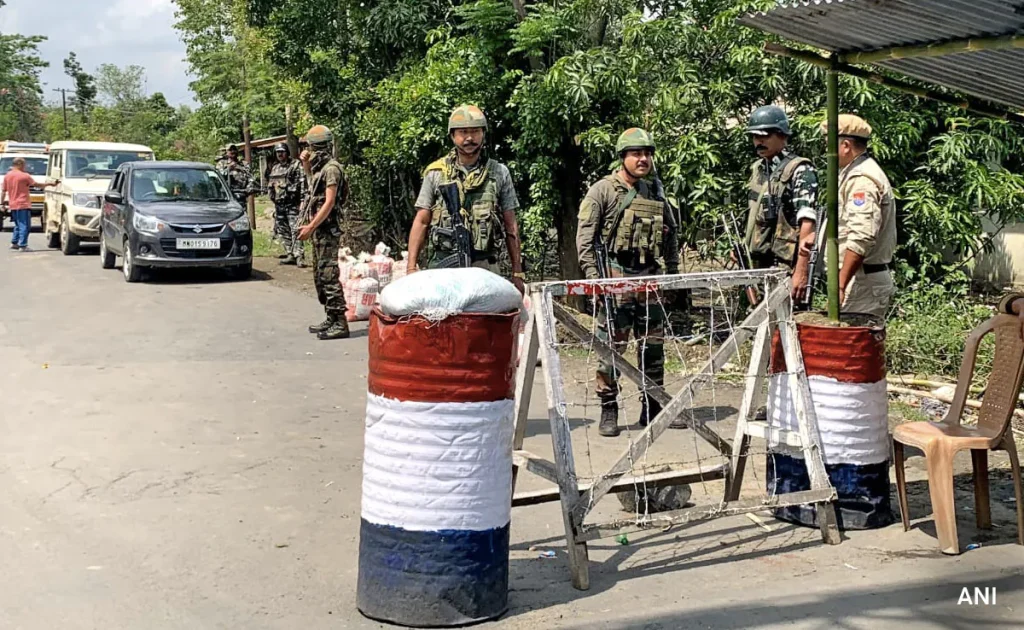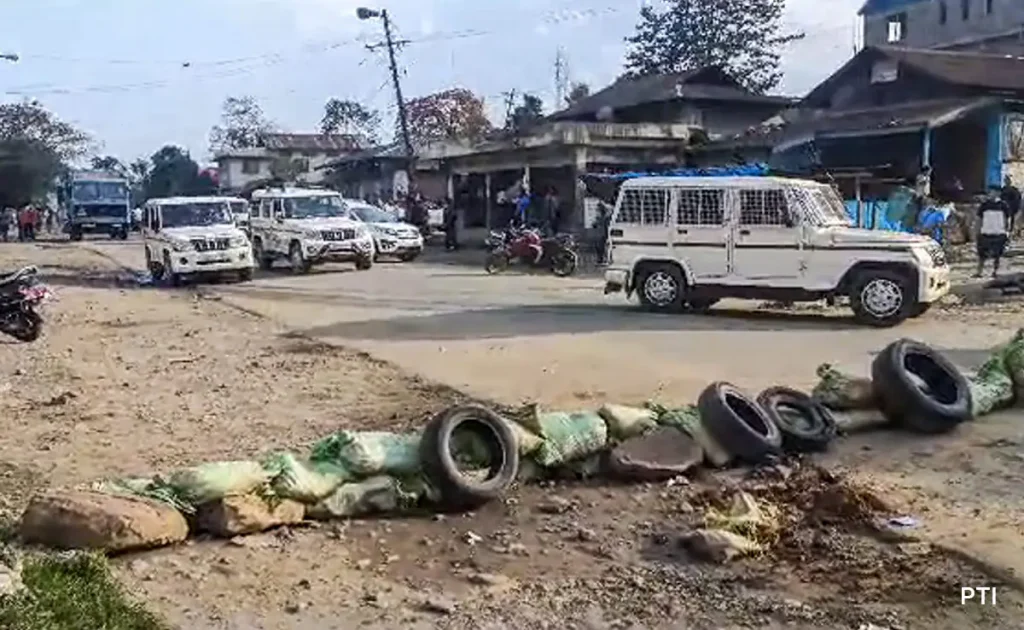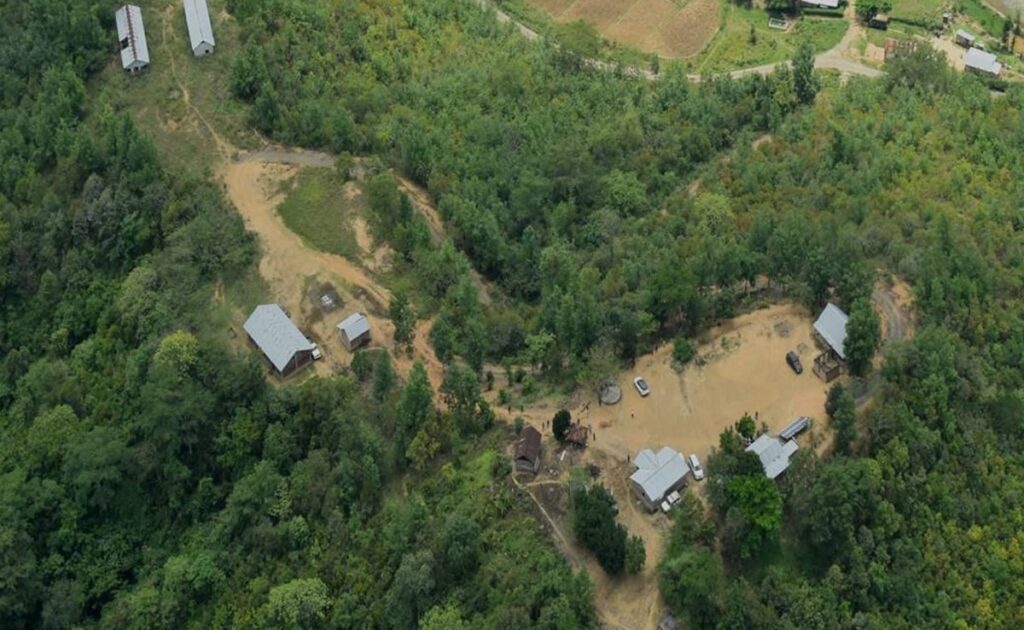India’s premier counter-terrorism agency, the National Investigation Agency (NIA), has revealed that insurgents from Manipur, who were seeking refuge in Myanmar, managed to infiltrate the state during the period of ethnic violence last year. These insurgents, belonging to the banned groups KYKL and PLA, were trained by the China-Myanmar module of NSCN(IM), an insurgent group from Nagaland.
The NIA’s chargesheet, submitted to a court in Guwahati, Assam, on March 27, also highlighted that the NSCN(IM) provided logistical and other forms of support to these proscribed terrorist organizations. The NIA further stated that the government had received intelligence regarding a transnational conspiracy orchestrated by the Myanmar-based leadership of these terror outfits, with the aim of destabilizing the security situation in Manipur and waging war against the Indian government.
According to the chargesheet, the NIA stated that the leadership of the KYKL and PLA in Myanmar made the decision to infiltrate their insurgents into Indian territory for the purpose of carrying out terror attacks. The NSCN(IM) leadership, as mentioned in the background note of the chargesheet, assured them safe passage, as well as providing them with arms, ammunition, explosives, and other terrorist equipment.

The NIA further explained that the ongoing ethnic violence between the Meitei community and the Kuki-Zo tribes in Manipur created an advantageous situation for the leaders of these terror outfits based in Myanmar to exploit. In September 2023, Manipur Police commandos apprehended five armed individuals dressed in military camouflage during routine checking in Imphal, the state capital. Although all five were later granted bail due to protests by locals, the NIA promptly arrested Moirangthem Anand Singh, one of the individuals, who was revealed to be a highly trained member of the PLA, as stated in the chargesheet.
According to the National Investigation Agency (NIA), the individuals in question were involved in a broader international plot orchestrated by the leadership of terrorist organizations based in Myanmar. These organizations were actively operating in the northeastern Indian states with the intention of capitalizing on the existing ethnic tensions in Manipur. Their objective was to carry out acts of terrorism and further escalate the deteriorating security situation in Manipur. Additionally, the NIA apprehended Seiminlun Gangte, who was identified as a significant suspect in an SUV explosion that occurred in Bishnupur, located 45 km away from Imphal, in June of the previous year.

“Not Only Misleading, But Cruel,” Says NSCN(IM)
The NSCN(IM) has accused the Centre of supporting a proxy war against them by using the Myanmar-based Kuki National Army (B) and the People’s Defence Force, despite having signed a ceasefire and engaging in talks for 27 years. The allegations have been described as misleading, cruel, and far from accurate by the NSCN(IM). In the 90s, the Kuki tribes clashed with the Nagas over land disputes, resulting in casualties on both sides. The NSCN(IM) further claimed that security forces are using Kukis as frontline forces against the Nagas, providing logistical support to Kuki militant groups. In May 2023, during the Meitei-Kuki ethnic violence, the NSCN(IM) urged both communities to prevent hostilities from affecting the Nagas in the violence-affected region. The NSCN(IM) also alleged that “Kuki militants” attacked a village where members of the Kom community, a Naga minor tribe, reside in Manipur’s Kangathei.

The Manipur assembly unanimously passed a resolution on February 29 urging the Centre to terminate the contentious Suspension of Operations (SoO) agreement with 25 Kuki-Zo insurgent groups. The deadline for the extension of the SoO agreement expired on that day. In 2008, the Kuki-Zo insurgent groups signed the tripartite SoO agreement with the Centre and the Manipur government.
These over two dozen Kuki-Zo insurgent groups are affiliated with two umbrella organizations – the Kuki National Organisation (KNO) and the United People’s Front (UPF). The KNO and UPF, representing the other groups, are signatories to the SoO agreement. They have been advocating for a separate land for the Kukis.
The ethnic conflict resulted in the deaths of more than 220 individuals and the displacement of nearly 50,000 people. Even a year later, thousands continue to reside in relief camps in both the Meitei-dominated valley and the Kuki-dominated hill areas.

